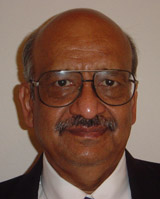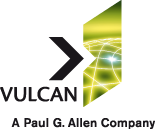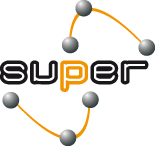March 6, 2008
CFP online: Call for research papers
You can now download the printable conference call here as PDF (updated 26. March 2008).
Introduction
The Web continues to grow and new technologies, modes of interactions, and applications are being developed. Building on this growth, Semantic Web technologies aim at providing a shared semantic information space, changing qualitatively our experiences on the Web. As Semantic Web technologies mature and permeate more and more application areas, new research challenges are coming to the fore and some unsolved ones are becoming more acute. These issues include creating and managing Semantic Web content, making Semantic Web applications robust and scalable, organizing and integrating information from different sources for novel uses, making semantics explicit in order to improve our overall experience with information technologies, and thus enabling us to use the wealth of information that is currently available in digital form for addressing our everyday tasks. To foster the exchange of ideas and collaboration, ISWC brings together researchers in relevant disciplines such as artificial intelligence, databases, social networks, distributed computing, web engineering, information systems, natural language processing, soft computing, and human-computer interaction.
ISWC 2008 calls for papers to its research track. The research track solicits the submission of original, principled research papers dealing with both analytical theoretical and practical aspects of Semantic Web research. Papers of the latter type are encouraged to present repeatability of their experiments, and share with the community their data and test harnesses.
Topics
Topics include, but are not limited to, the following.
- Applications of the Semantic Web
- Applications with clear lessons learned or evaluations
- Semantic Web for large scale applications, desktops or personal information management
- Semantic Web technologies for multimedia, sensors, and situational awareness
- Semantic Web technologies for P2P, services, grids and middleware
- Management of Semantic Web Data
- Languages, tools and methodologies for representing and managing Semantic Web data
- Database, IR and AI technologies for the Semantic Web
- Search, query, integration, analysis of the Semantic Web
- Robust and scalable knowledge management and reasoning on the Web
- Machine learning and information extraction for the Semantic Web
- Cleaning, assurance, trust, provenance of Semantic Web data, services and processes
- Ontologies
- Ontology modeling, reuse, extraction, and evolution
- Ontology mapping, merging, and alignment
- Searching and ranking ontologies
- Ontology evaluation
- Social Semantic Web
- Social networks and processes on the Semantic Web
- Semantic Web technology for collaboration and cooperation
- Representing and reasoning about trust, privacy, and security
- User Interfaces
- Visualization of and interacting with Semantic Web data
- Semantic Web content creation and annotation
- Mashing up Semantic Web data and processes
Dates
- Abstracts due: May 9
- Submissions: May 16
- Rebuttal phase: June 14-16
- Notification: July 11
- Camera ready: August 15
Evaluation of Submitted Research Papers
ISWC is a highly attractive conference series. From all previous ISWC conferences,
we have seen researchers and practitioners making best use of the methods and technologies reported at the event for their own research and practice. We are very eager to maintain this high level of impact achieved by ISWC papers in the future. For this purpose, all papers will be critically reviewed by 3 reviewers and one vice chair.
To assess papers, reviewers will judge originality of papers, significance for further research and/or practice related to the Semantic Web, technical soundness of the proposed approaches and readability of the submitted papers.
Specific weight will be given to the evaluation of the approaches described in the papers. We strongly encourage evaluations that are repeatable. Depending on the type of the paper and the proposed approach indications for repeatability may vary. For instance, theoretical papers may want to offer links to full proofs of theorems, empirical work may want to offer download of training and test data and experimental results, case study work may link to case study journals for deeper insights, system papers may provide download of the software or a Web client together with full assessments in user studies, approaches that describe algorithms may want to
provide the algorithm in source code and in an easy-to-install manner.
Submission of Abstracts and Papers
Submissions and reviewing will be handled using the EasyChair reviewing system. Presubmission of abstracts will be a strict requirement. Final papers can be submitted until May 16, 23:59 hrs, Hawaiian time. The submission platform will be opened from beginning of April.
Formatting
Paper submissions must be formatted in the style of the Springer Publications format for Lecture Notes in Computer Science (LNCS). For complete details, see Springer’s Author Instructions. Formatted papers must be no longer than 16 pages. Papers that exceed this limit will be rejected without review. ISWC 2008 will not accept research papers that, at the time of submission, are under review for or have already been published in or accepted for publication in a journal or another conference. Authors of accepted papers will be required to provide semantic annotations for the abstract of their submission for the Semantic Web (help will be provided for this task). Details will be provided on the conference Web page at the time of acceptance. At least one author of each accepted paper must register for the conference.

















